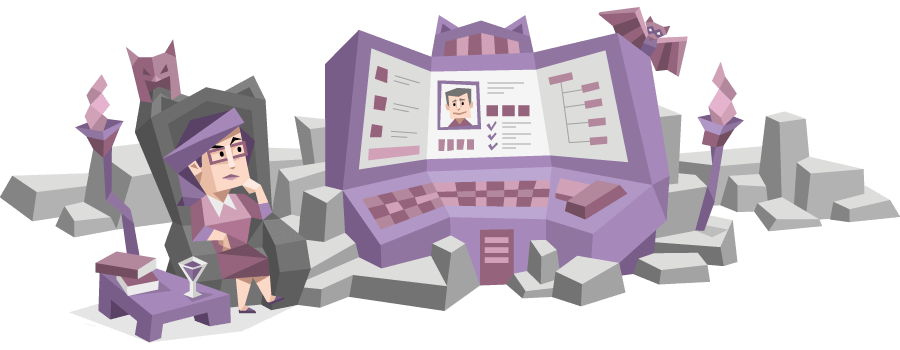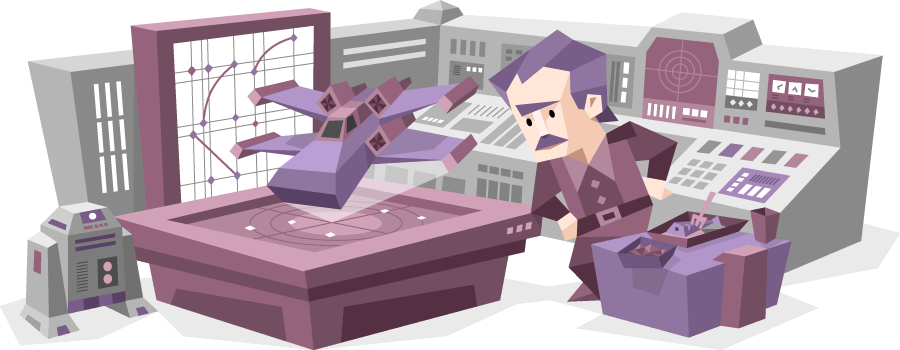Why INTJ?

Portrait of an INTJ - Introverted iNtuitive Thinking Judging
(Introverted Intuition with Extraverted Thinking)
"The Scientist" "THE MASTERMIND" "THE ARCHITECT"
An INTJs primary mode of living is focused internally, where they take things in primarily via their intuition. INTJs secondary mode is external, where they deal with things rationally and logically.
INTJs live in the world of ideas and strategic planning. They value intelligence, knowledge, and competence, and typically have high standards in these regards, which they continuously strive to fulfill. To a somewhat lesser extent, they have similar expectations of others. INTJs form just two percent of the population, and women of this personality type are especially rare, forming just 0.8% of the population. People with the INTJ personality type are imaginative yet decisive, ambitious yet private, amazingly curious, but they do not squander their energy.
Rules, limitations and traditions are anathema to the INTJ personality type – everything should be open to questioning and reevaluation, and if they see a way, INTJs will often act unilaterally to enact their technically superior, sometimes insensitive, and almost always unorthodox methods and ideas.
With a natural thirst for knowledge that shows itself early in life, INTJs are often given the title of “bookworm” as children. While this may be intended as an insult by their peers, they more than likely identify with it and are even proud of it, greatly enjoying their broad and deep body of knowledge. INTJs enjoy sharing what they know as well, confident in their mastery of their chosen subjects, but owing to their Intuitive (N) and Judging (J) traits, they prefer to design and execute a brilliant plan within their field rather than share opinions on “uninteresting” distractions like gossip.
A paradox to most observers, INTJs are able to live by glaring contradictions that nonetheless make perfect sense – at least from a purely rational perspective. For example, INTJs are simultaneously the most starry-eyed idealists and the bitterest of cynics, a seemingly impossible conflict. But this is because INTJ types tend to believe that with effort, intelligence and consideration, nothing is impossible, while at the same time they believe that people are too lazy, short-sighted or self-serving to actually achieve those fantastic results. Yet that cynical view of reality is unlikely to stop an interested INTJ from achieving a result they believe to be relevant.

With Introverted Intuition dominating their personality, INTJs focus their energy on observing the world, and generating ideas and possibilities. Their mind constantly gathers information and makes associations about it. They are tremendously insightful and usually are very quick to understand new ideas. However, their primary interest is not understanding a concept, but rather applying that concept in a useful way. Unlike the INTP, they do not follow an idea as far as they possibly can, seeking only to understand it fully. INTJs are driven to come to conclusions about ideas. Their need for closure and organization usually requires that they take some action.
INTJ's tremendous value and need for systems and organization, combined with their natural insightfulness, makes them excellent scientists. An INTJ scientist gives a gift to society by putting their ideas into a useful form for others to follow. It is not easy for the INTJ to express their internal images, insights, and abstractions. The internal form of the INTJ's thoughts and concepts is highly individualized, and is not readily translatable into a form that others will understand. However, the INTJ is driven to translate their ideas into a plan or system that is usually readily explainable, rather than to do a direct translation of their thoughts. They usually don't see the value of a direct transaction, and will also have difficulty expressing their ideas, which are non-linear. However, their extreme respect of knowledge and intelligence will motivate them to explain themselves to another person who they feel is deserving of the effort.
INTJs are natural leaders, although they usually choose to remain in the background until they see a real need to take over the lead. When they are in leadership roles, they are quite effective, because they are able to objectively see the reality of a situation, and are adaptable enough to change things which aren't working well. They are the supreme strategists - always scanning available ideas and concepts and weighing them against their current strategy, to plan for every conceivable contingency.
INTJs spend a lot of time inside their own minds, and may have little interest in the other people's thoughts or feelings. Unless their Feeling side is developed, they may have problems giving other people the level of intimacy that is needed. Unless their Sensing side is developed, they may have a tendency to ignore details which are necessary for implementing their ideas.
The INTJ's interest in dealing with the world is to make decisions, express judgments, and put everything that they encounter into an understandable and rational system. Consequently, they are quick to express judgments. Often they have very evolved intuitions, and are convinced that they are right about things. Unless they complement their intuitive understanding with a well-developed ability to express their insights, they may find themselves frequently misunderstood. In these cases, INTJs tend to blame misunderstandings on the limitations of the other party, rather than on their own difficulty in expressing themselves. This tendency may cause the INTJ to dismiss others input too quickly, and to become generally arrogant and elitist.
INTJs are ambitious, self-confident, deliberate, long-range thinkers. Many INTJs end up in engineering or scientific pursuits, although some find enough challenge within the business world in areas which involve organizing and strategic planning. They dislike messiness and inefficiency, and anything that is muddled or unclear. They value clarity and efficiency, and will put enormous amounts of energy and time into consolidating their insights into structured patterns.
Other people may have a difficult time understanding an INTJ. They may see them as aloof and reserved. Indeed, the INTJ is not overly demonstrative of their affections, and is likely to not give as much praise or positive support as others may need or desire. That doesn't mean that he or she doesn't truly have affection or regard for others, they simply do not typically feel the need to express it. Others may falsely perceive the INTJ as being rigid and set in their ways. Nothing could be further from the truth, because the INTJ is committed to always finding the objective best strategy to implement their ideas. The INTJ is usually quite open to hearing an alternative way of doing something.
When under a great deal of stress, the INTJ may become obsessed with mindless repetitive, Sensate activities, such as over-drinking. They may also tend to become absorbed with minutia and details that they would not normally consider important to their overall goal.
INTJs need to remember to express themselves sufficiently, so as to avoid difficulties with people misunderstandings. In the absence of properly developing their communication abilities, they may become abrupt and short with people, and isolationists.
INTJs are brilliant and confident in bodies of knowledge they have taken the time to understand, but unfortunately the social contract is unlikely to be one of those subjects. White lies and small talk are hard enough as it is for a type that craves truth and depth, but INTJs may go so far as to see many social conventions as downright stupid. Ironically, it is often best for them to remain where they are comfortable – out of the spotlight – where the natural confidence prevalent in INTJs as they work with the familiar can serve as its own beacon, attracting people, romantically or otherwise, of similar temperament and interests.
INTJs are defined by their tendency to move through life as though it were a giant chess board, pieces constantly shifting with consideration and intelligence, always assessing new tactics, strategies and contingency plans, constantly outmaneuvering their peers in order to maintain control of a situation while maximizing their freedom to move about. This isn’t meant to suggest that INTJs act without conscience, but to many Feeling (F) types, INTJs’ distaste for acting on emotion can make it seem that way, and it explains why many fictional villains (and misunderstood heroes) are modeled on this personality type.
INTJs have a tremendous amount of ability to accomplish great things. They have insight into the Big Picture, and are driven to synthesize their concepts into solid plans of action. Their reasoning skills gives them the means to accomplish that. INTJs are most always highly competent people, and will not have a problem meeting their career or education goals. They have the capability to make great strides in these arenas. On a personal level, the INTJ who practices tolerances and puts effort into effectively communicating their insights to others has everything in his or her power to lead a rich and rewarding life.

- Quick, Imaginative and Strategic Mind – INTJs pride themselves on their minds, taking every opportunity to improve their knowledge, and this shows in the strength and flexibility of their strategic thinking. Insatiably curious and always up for an intellectual challenge, INTJs can see things from many perspectives. INTJs use their creativity and imagination not so much for artistry, but for planning contingencies and courses of action for all possible scenarios.
- High Self-Confidence – INTJs trust their rationalism above all else, so when they come to a conclusion, they have no reason to doubt their findings. This creates an honest, direct style of communication that isn't held back by perceived social roles or expectations. When INTJs are right, they're right, and no amount of politicking or hand-holding is going to change that fact – whether it's correcting a person, a process, or themselves, they'd have it no other way.
- Independent and Decisive – This creativity, logic and confidence come together to form individuals who stand on their own and take responsibility for their own actions. Authority figures do not impress INTJs, nor do social conventions or tradition, and no matter how popular something is, if they have a better idea, INTJs will stand against anyone they have to in a bid to have it changed. Either an idea is the most rational or it's wrong, and INTJs will apply this to their arguments as well as their own behavior, staying calm and detached from these sometimes emotionally charged conflicts. INTJs will only be swayed by those who follow suit.
- Hard-working and determined – If something piques their interest, INTJs can be astonishingly dedicated to their work, putting in long hours and intense effort to see an idea through. INTJs are incredibly efficient, and if tasks meet the criteria of furthering a goal, they will find a way to consolidate and accomplish those tasks. However, this drive for efficiency can also lead to a sort of elaborate laziness, wherein INTJs find ways to bypass seeming redundancies which don't seem to require a great deal of thought – this can be risky, as sometimes double-checking one's work is the standard for a reason.
- Open-minded – All this rationalism leads to a very intellectually receptive personality type, as INTJs stay open to new ideas, supported by logic, even if (and sometimes especially if) they prove INTJs' previous conceptions wrong. When presented with unfamiliar territory, such as alternate lifestyles, INTJs tend to apply their receptiveness and independence, and aversion to rules and traditions, to these new ideas as well, resulting in fairly liberal social senses.
- Jacks-of-all-Trades – INTJs' open-mindedness, determination, independence, confidence and strategic abilities create individuals who are capable of doing anything they set their minds to. Excelling at analyzing anything life throws their way, INTJs are able to reverse-engineer the underlying methodology of most any system and apply the concepts that are exposed wherever needed. INTJs tend to have their pick of professions, from IT architects to political masterminds.

INTJ Weaknesses
- Arrogant – INTJs are perfectly capable of carrying their confidence too far, falsely believing that they've resolved all the pertinent issues of a matter and closing themselves off to the opinions of those they believe to be intellectually inferior. Combined with their irreverence for social conventions, INTJs can be brutally insensitive in making their opinions of others all too clear.
- Judgmental – INTJs tend to have complete confidence in their thought process, because rational arguments are almost by definition correct – at least in theory. In practice, emotional considerations and history are hugely influential, and a weak point for INTJs is that they brand these factors and those who embrace them as illogical, dismissing them and considering their proponents to be stuck in some baser mode of thought, making it all but impossible to be heard.
- Overly analytical – A recurring theme with INTJs is their analytical prowess, but this strength can fall painfully short where logic doesn't rule – such as with human relationships. When their critical minds and sometimes neurotic level of perfectionism (often the case with Turbulent INTJs) are applied to other people, all but the steadiest of friends will likely need to make some distance, too often permanently.
- Loathe highly structured environments – Blindly following precedents and rules without understanding them is distasteful to INTJs, and they disdain even more authority figures who blindly uphold those laws and rules without understanding their intent. Anyone who prefers the status quo for its own sake, or who values stability and safety over self-determination, is likely to clash with INTJ personality types. Whether it's the law of the land or simple social convention, this aversion applies equally, often making life more difficult than it needs to be.
- Clueless in romance – This antipathy to rules and tendency to over-analyze and be judgmental, even arrogant, all adds up to a personality type that is often clueless in dating. Having a new relationship last long enough for INTJs to apply the full force of their analysis on their potential partner's thought processes and behaviors can be challenging. Trying harder in the ways that INTJs know best can only make things worse, and it's unfortunately common for them to simply give up the search. Ironically, this is when they're at their best, and most likely to attract a partner.
INTJ Friends
People with the INTJ personality type tend to have more success in developing friendships than they do with romantic relationships, but they none-the-less suffer from many of the same setbacks, substituting rational processes for emotional availability. This intellectual distance tends to go both ways, making INTJs notoriously difficult to read and get to know, and making INTJs not want to bother reading anyone they think isn't on their level. Overcoming these hurdles is often all but impossible without the sort of instant connection made possible by sharing the Intuitive (N) trait.

INTJs tend to have set opinions about what works, what doesn't, what they're looking for, and what they're not. These discriminating tastes can come across as arrogant, but INTJs would simply argue that it's a basic filtering mechanism that allows them to direct their attentions where they will do the most good. The fact is that in friendship, INTJs are looking for more of an intellectual soul mate than anything else, and those that aren't prepared for that kind of relationship are simply boring. INTJs need to share ideas – a self-feeding circle of gossip about mutual friends is no kind of social life for them.
INTJs will keep up with just a few good friends, eschewing larger circles of acquaintances in favor of depth and quality.
Further, having more than just a few friends would compromise INTJs' sense of independence and self-sufficiency – they gladly give up social validation to ensure this freedom. INTJs embrace this idea even with those who do fit into their social construct, requiring little attention or maintenance to remain on good terms, and encouraging that same independence in their friends.
When it comes to emotional support, INTJs are far from being a bastion of comfort. They actively suppress their own emotions with shields of rationality and logic, and expect their friends to do the same. When emotionally charged situations do come about, INTJs may literally have no clue how to handle them appropriately, a glaring contrast from their usual capacity for decisive self-direction and composure.
When they are in their comfort zone though, among people they know and respect, INTJs have no trouble relaxing and enjoying themselves. Their sarcasm and dark humor are not for the faint of heart, nor for those who struggle to read between the lines, but they make for fantastic story-telling among those who can keep up. This more or less limits their pool of friends to fellow Analysts (NT) and Diplomat (NF) types, as Observant (S) types' preference for more straightforward communication often simply leaves both parties frustrated.
It's not easy to become good friends with INTJs. Rather than traditional rules of social conduct or shared routine, INTJs have exacting expectations for intellectual prowess, uncompromising honesty and a mutual desire to grow and learn as sovereign individuals. INTJs are gifted, bright and development-oriented, and expect and encourage their friends to share this attitude. Anyone falling short of this will be labeled a bore – anyone meeting these expectations will appreciate them of their own accord, forming a powerful and stimulating friendship that will stand the test of time.
INTJ Careers
Professional competence is often the area in which INTJs shine most brilliantly. Their capacity for digesting difficult and complex theories and principles and converting them into clear and actionable ideas and strategies is unmatched by any other type. INTJs are able to filter out the noise of a situation, identifying the core thread that needs to be pulled in order to unravel others' messes so that they can be rewoven into something at once beautifully intricate and stunningly simple in its function.
The real challenge for INTJs is that in order for their innovative (and to less insightful individuals, seemingly counter-intuitive) ideas to be heard, they need to have a friendly ear to bend, and developing an amiable rapport with authority figures is not exactly in INTJs' list of core strengths. In their early careers, INTJs will often have to suffer through menial tasks and repeated rejections as they develop their abilities into a skillset that speaks for itself.
INTJs will often find ways to automate routine and mind-numbing tasks, and as they progress, their natural confidence, dedication, and creative intelligence will open the doors to the increased complexity and freedom they crave.
INTJs tend to prefer to work alone, or at most in small groups, where they can maximize their creativity and focus without repeated interruptions from questioning colleagues and meetings-happy supervisors. For this reason INTJs are unlikely to be found in strictly administrative roles or anything that requires constant dialogue and heavy teamwork. Rather, INTJs prefer more "lone wolf" positions as mechanical or software engineers, lawyers or freelance consultants, only accepting competent leadership that helps in these goals, and rejecting the authority of those who hold them back.

Their independent attitude and tireless demand for competence mean that INTJs absolutely loathe those who get ahead by seemingly less meritocratic means like social prowess and political connections. INTJs have exceptionally high standards, and if they view a colleague or supervisor as incompetent or ineffective, respect will be lost instantly and permanently. INTJs value personal initiative, determination, insight and dedication, and believe that everyone should complete their work to the highest possible standards – if a schmoozing shill breezes through without carrying their own weight, they may find INTJs' inventiveness and determination used in a whole new capacity as the winds turn against them.
As their careers progress further and their reputation grows, so will the complexity of INTJs' tasks and projects. INTJs demand progress and evolution, new challenges and theories, and they often accomplish this by pushing into more active strategic positions. While they don't care for the spotlight, INTJs do enjoy controlling their ideas, and will often expand into low-profile but influential roles as project managers, system engineers, marketing strategists, systems analysts, and military strategists.
But really, INTJs' vision, creativity, and competence in executing their plans make them viable in just about any career that requires them to think about what they're doing. While some careers, such as low-level sales and human resources, clearly do not play to their strengths, INTJs are able to build a niche into just about any institution, including their own, that they put their minds to.
INTJ in the Workplace
Above all else, INTJs want to be able to tackle intellectually interesting work with minimal outside interference, no more, no less. Time-consuming management techniques like trust-building getaways, progress meetings, and drawn-out, sandwiched criticisms are only going to annoy INTJs – all they need, be they subordinate, colleague, or manager, is to meet their goals with the highest standard of technical excellence and to be surrounded by, if anyone at all, people who share those values.
On paper this makes them appear to be exemplary employees, and in many ways they are, but there are many types, especially those with a combination of the Observant (S) and Feeling (F) traits, who will find a work (or any other) relationship with INTJs extremely challenging. INTJs have a fairly strict code of conduct when it comes to their work, and if they see coworkers valuing social activities and "good enough" workmanship over absolute excellence, it will be a turbulent environment. For this reason, INTJs tend to prefer to work in tight, like-minded groups – a group of one, if necessary.
INTJ Subordinates
INTJs are independent people, and they quickly become frustrated if they find themselves pushed into tightly defined roles that limit their freedom. With the direction of a properly liberal manager, INTJs will establish themselves in a position of expertise, completing their work not with the ambition of managerial promotion, but for its own intrinsic merit. INTJs require and appreciate firm, logical managers who are able to direct efforts with competence, deliver criticism when necessary, and back up those decisions with sound reason.

Note that it is INTJs' expectations of their managers that are being defined here, and not the other way around, as with some other personality types. Titles mean little to INTJs – trust and respect are earned, and INTJs expect this to be a two way street, receiving and delivering advice, criticisms and results. INTJs expect their managers to be intelligent enough and strong enough to be able to handle this paradigm. A silent INTJ conveys a lack of respect better than all their challenges ever will.
INTJ Colleagues
Active teamwork is not ideal for people with the INTJ personality type. Fiercely independent and private, INTJs use their nimble minds and insight to deflect personal talk, avoid workplace tension, and create situations where they aren't slowed down by those less intelligent, less capable, or less adaptable to more efficient methods. Instead, they will likely poke fun by forcing them to read between the lines and making them deal alone with work that could have been easier if they'd only taken INTJs' suggestions.
INTJs are brilliant analysts, and will likely gather a small handful of trusted colleagues to involve in their brainstorming sessions, excluding those who get too hung up on details, or who otherwise have yet to earn their respect. But more likely, INTJs will simply take the initiative alone – INTJs love embracing challenges and their consequent responsibilities, and their perfectionism and determination usually mean that the work comes out clean and effective, affording INTJs the twin joys of solitude and victory.
INTJ Managers
Though they may be surprised to hear it, INTJs make natural leaders, and this shows in their management style. INTJs value innovation and effectiveness more than just about any other quality, and they will gladly cast aside hierarchy, protocol and even their own beliefs if they are presented with rational arguments about why things should change. INTJs promote freedom and flexibility in the workplace, preferring to engage their subordinates as equals, respecting and rewarding initiative and adopting an attitude of "to the best mind go the responsibilities", directing strategy while more capable hands manage the day-to-day tactics.
But this sort of freedom isn't just granted, it's required – those who are accustomed to just being told what to do, who are unable to direct themselves and challenge existing notions, will have a hard time meeting INTJs' extremely high standards. Efficiency and results are king to INTJs, and behaviors that undermine these conditions are quashed mercilessly. If subordinates try to compensate for their weakness in these areas by trying to build a social relationship with their INTJ managers, on their heads be it – office gossip and schmoozing are not the way into INTJs' hearts – only bold competence will do.
INTJ personality conclusion
Few personality types are as mysterious and controversial as INTJs. Possessing intellect and strategic thinking that allow them to overcome many challenging obstacles, INTJs have the ability to both develop and implement a plan for everything, including their own personal growth.
Yet INTJs can be easily tripped up in areas where careful and rational thinking is more of a liability than an asset. Whether it is finding (or keeping) a partner, making friends, reaching dazzling heights on the career ladder or adapting to the unpredictable, INTJs need to put in a conscious effort to develop their weaker traits and additional skills.

Famous INTJ's
Arnold Schwarzenegger, Isaac Newton, Thomas Jefferon, Jane Austen, Dwight Eisenhower, Augustus, Mark Zuckerberg, Colin Powell, Dan Aykroyd, Donald Rumsfeld, Angela Lansbury, Raymond Burr, Isaac Newton, Ayn Rand, Friedrich Nietzsche, Elon Musk, Bobby Fischer, Nikola Tesla, Stephen Hawking, John Nash, John Maynard Keynes, Paul Krugman, Isaac Asimov, Christopher Hitchens, Ted Kaczynski, James Cameron, Russel Crowe, Jodie Foster.
Bitcoin Links
- View/Rate Clarke's Services
- Digital Assets Glossary
- Thai Bargirl Bitcoin Services
- Live Cryptocurrency Prices
- Pay Clarke for Bitcoin Consultation
- The Pride of Our Footscray Community Bar Share Sales Platform
- Sign up to receive the INTJ Billing Newsletter
- Clark Moody Bitcoin Dashboard
- INTJ Billing Status Page
- INTJ Billing Thai Bargirls Bitcoin Project - All Forms Page (Protected)
- INTJ Billing Thai Bargirl Clients with custodial and non custodial Bitcoin Wallets (Protected)
- INTJ Billing Thai Bargirl Clients Upload your Identification card to a secure area (encrypted)
- Buy Bitcoin from INTJ Billing to send to a Thai Bargirl in Thailand
- Request a Bitcoin Wallet be set up for your Thai Bar Girl friend in Thailand
- Thai Bar Girls Request a Bitcoin Wallet for yourself using this link
- BitPay Website
- BitPay Wallet Android
- BitPay Wallet iPhone
- Siam Secure Pattaya Thailand
- BTCPay Server is a self-hosted, open-source cryptocurrency payment processor. It's secure, private, censorship-resistant and free
- Buy Cryptosteel Capsule
- Buy Ledger Nano X
- The Night Wish Group
